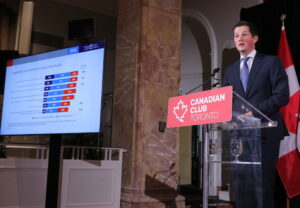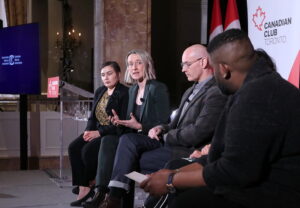
How skeptical are Canadians when it comes to health information? The Canadian Medical Association wants to know.
By Miriam Bosiljevac
A new survey released Tuesday by the Canadian Medical Association (CMA) and Abacus Data shows that nearly half of respondents followed medical advice found online and that they feel they’re able to discern the accuracy of information. But that same survey indicates that 43% of Canadians are highly susceptible to misinformation. It also shows that fewer Canadians trust scientific studies reported on in the news.

Speaking at a Health and Media panel organized by the CMA on January 21, 2025 at the Fairmont Royal York in Toronto, David Coletto, CEO of Abacus Data, discussed the findings. “One of the trends that we have seen is that fewer and fewer news organizations are investing resources into reporting on health-related issues,” said Coletto. He added that Canadians who rely solely on social media for their health news are the most vulnerable.
43% of Canadians are highly susceptible to misinformation.
There’s also an increasing number of people who are avoiding the news altogether, and this is having an adverse effect on seeking medical care. 38% reported a delay in seeking treatment. An additional 35% avoided receiving effective treatments altogether due to misinformation.

Dr. Joss Reimer shared that it can feel like an exaggeration when discussing misinformation. During one of her recent shifts at Women’s Hospital, a patient who had post-partum bleeding refused a transfusion. “After having a baby it’s actually the number one cause of maternal death globally (…) She refused that transfusion because she didn’t want vaccinated blood,” Dr. Reimer said, adding that beliefs based on false information can cause needless harm to patients.
43% experienced mental distress or increased anxiety as a result of health related misinformation.
The panelists agreed that current efforts to combat misinformation are falling short of what is needed. 80% of survey respondents still trust medical professionals to provide or share accurate information, and a similar number trust Canadian public health agencies. The survey also showed that 58% trust Canadian news organizations to keep them informed, while only 35% trusted US news sources.
There’s a generational component as well. Over half of Boomers still turn to television news, while half of Gen Z turn to social media for their news content. 70% of Gen Z however say they’ve encountered false or misleading information and that number has increased since the survey was conducted last year.
The complete survey results can be found on the CMA website.

Be the first to comment